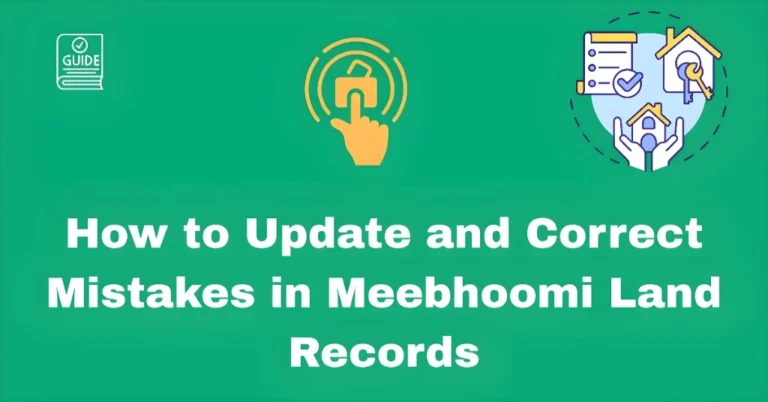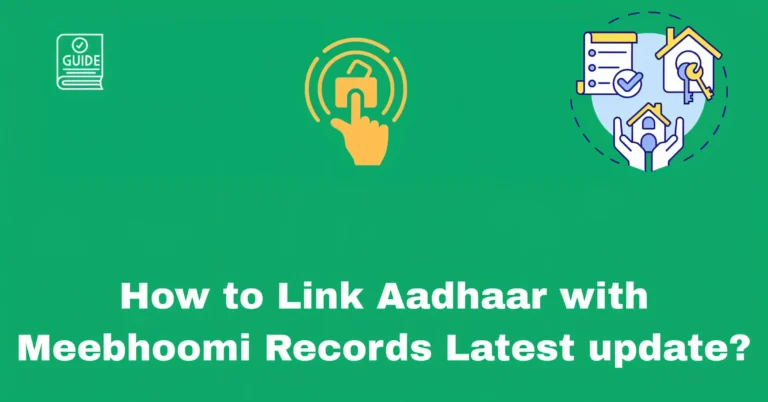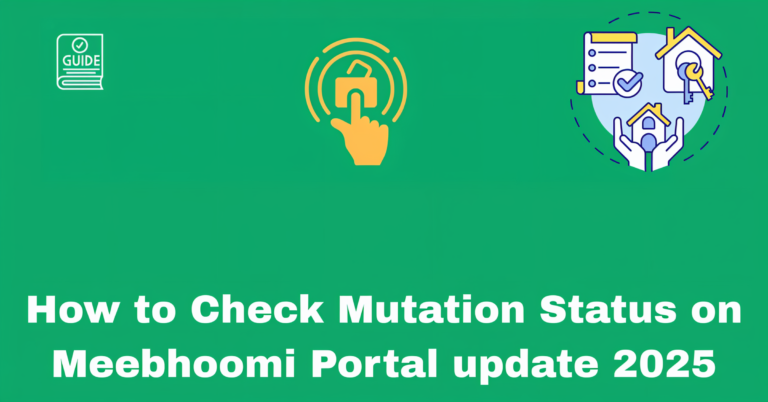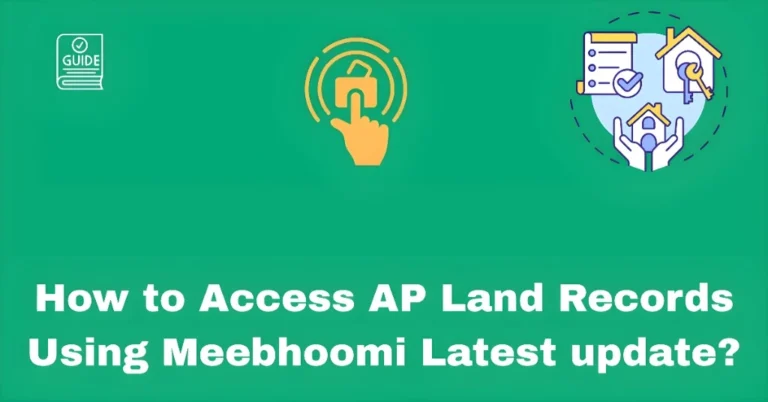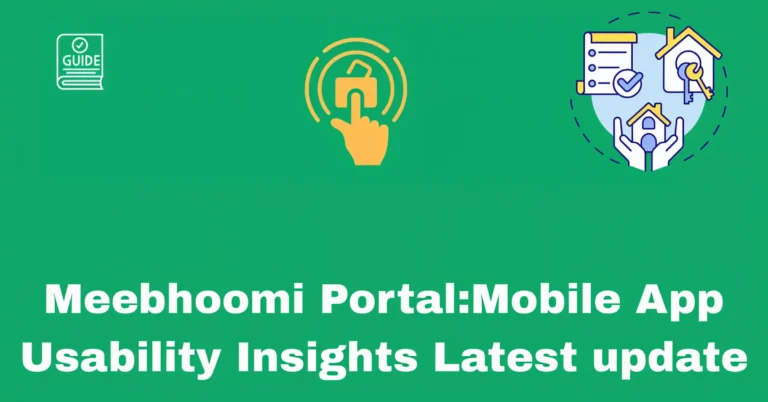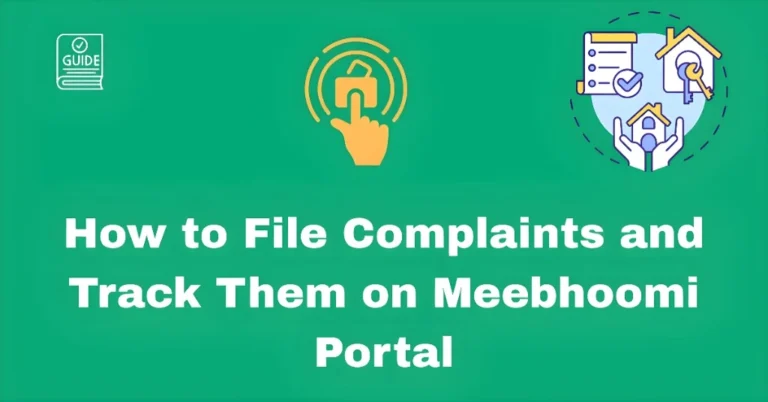Are Meebhoomi’s Digitally Unsigned Land Records Legally Valid?
Are Meebhoomi’s Digitally Unsigned Land Records Legally Valid?
In recent years, the Meebhoomi portal has revolutionized the way land records are accessed and managed in Andhra Pradesh. However, one common question that arises is whether digitally unsigned land records from the portal hold legal validity. Let’s break down the concept of digitally unsigned records, their legal status, and what it means for landowners and other stakeholders.
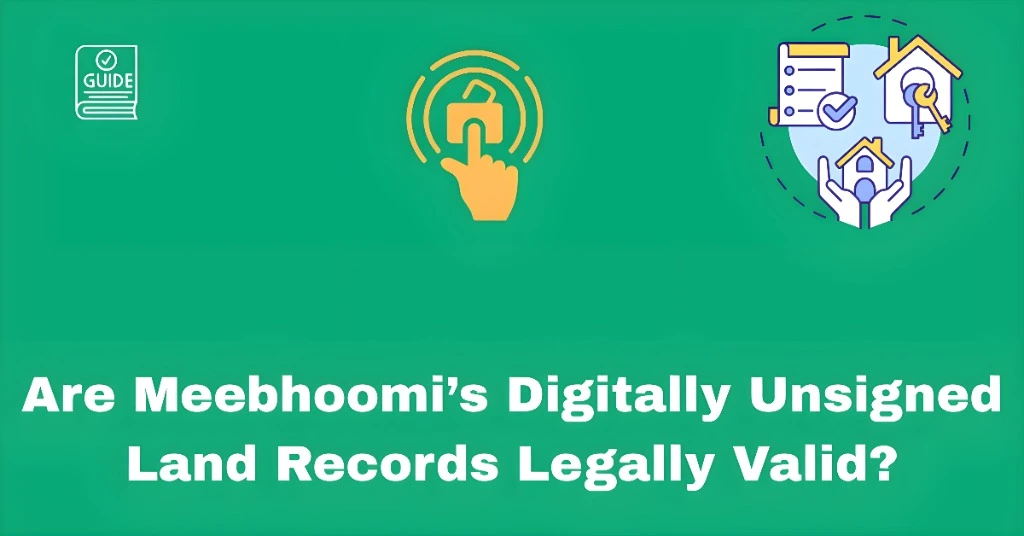
What Are Digitally Unsigned Land Records?
Digitally unsigned land records refer to documents available on the Meebhoomi portal that have not been signed or stamped by a government official. These documents are typically available for viewing and downloading in a digital format, but they lack a physical signature or official seal, which is usually associated with traditional paper documents.
Legal Validity of Digitally Unsigned Land Records
The key concern for many landowners is whether these digitally unsigned records can be used in legal proceedings, transactions, or other official matters. Here’s what you need to know:
1. Meebhoomi Land Records as Legal Proof
While digitally unsigned land records on Meebhoomi are not legally certified copies, they still carry significant weight. The records available on Meebhoomi, whether signed or unsigned, are generated by the Revenue Department of Andhra Pradesh, which is the authoritative body for land records in the state. This makes the digital copy an authentic reflection of your land details.
2. Role of Digitally Unsigned Records
Digitally unsigned land records can serve as preliminary proof of ownership, boundaries, and land details. They can be used for:
Initial Verification: To confirm ownership or verify basic land details before proceeding with transactions.
Government Schemes: They can be used to apply for certain government benefits and schemes related to agriculture or land ownership.
However, for more formal purposes like property transactions, securing loans, or any legal disputes, you’ll likely need an official, certified copy of the land record. These can be obtained from the local revenue office.
When Are Digitally Signed Records Required?
A digitally signed record is an official copy that carries the government’s seal or signature, making it legally valid for high-stakes transactions. This includes situations such as:
Selling or Buying Property: For property transactions, a certified copy of the land record is often required.
Loan Applications: Banks and financial institutions typically require signed records to process land-based loans.
Court Cases: In legal disputes regarding land ownership or boundaries, a digitally signed record is needed as evidence.
How to Obtain a Digitally Signed Record from Meebhoomi
If you need a legally valid, signed land record, you can follow these steps:
Visit the Meebhoomi Portal: Go to meebhoomi.ap.gov.in.
Request for Certified Copy: Look for the option to request a certified copy of your land record (1B or Adangal).
Visit the Revenue Office: In some cases, you may need to visit the local revenue office or service center to obtain the certified copy.
Official Verification: Once verified, the document will be signed and stamped, making it legally valid for official use.
Pros and Cons of Digitally Unsigned Land Records
Pros
Cons
Pros:
Convenience: Accessing land records online is quick and easy, saving time and travel costs.
Free Access: Digitally unsigned records can often be downloaded at no cost.
Instant Access: You can view and print your land records instantly from anywhere.
Cons:
Lack of Legal Weight: Unsigned records cannot be used in high-stakes transactions, such as property sales or loans.
Not Always Accepted: Some institutions or legal bodies may not accept unsigned digital records as valid proof of ownership.
Tips for Landowners Regarding Digitally Unsigned Records
Always Verify: Before making significant decisions, especially related to property transactions, ensure you have the official certified copy.
Check with Banks and Authorities: Confirm whether the institution or authority you’re dealing with accepts digitally unsigned records for your intended purpose.
Keep Your Documents Updated: Regularly check and download updated records to ensure the information is accurate and complete.
FAQs
Final Words
While digitally unsigned land records from the Meebhoomi portal are an authentic and convenient way to access land details, they are not legally valid for all purposes. For formal transactions like property sales, legal proceedings, or loan applications, you’ll need an officially signed copy. Make sure to keep your records up-to-date and obtain the certified copies when necessary to ensure smooth property dealings.
If you have any questions or face issues with accessing or obtaining signed records, don’t hesitate to reach out to the Meebhoomi support team or your local revenue office for assistance.
